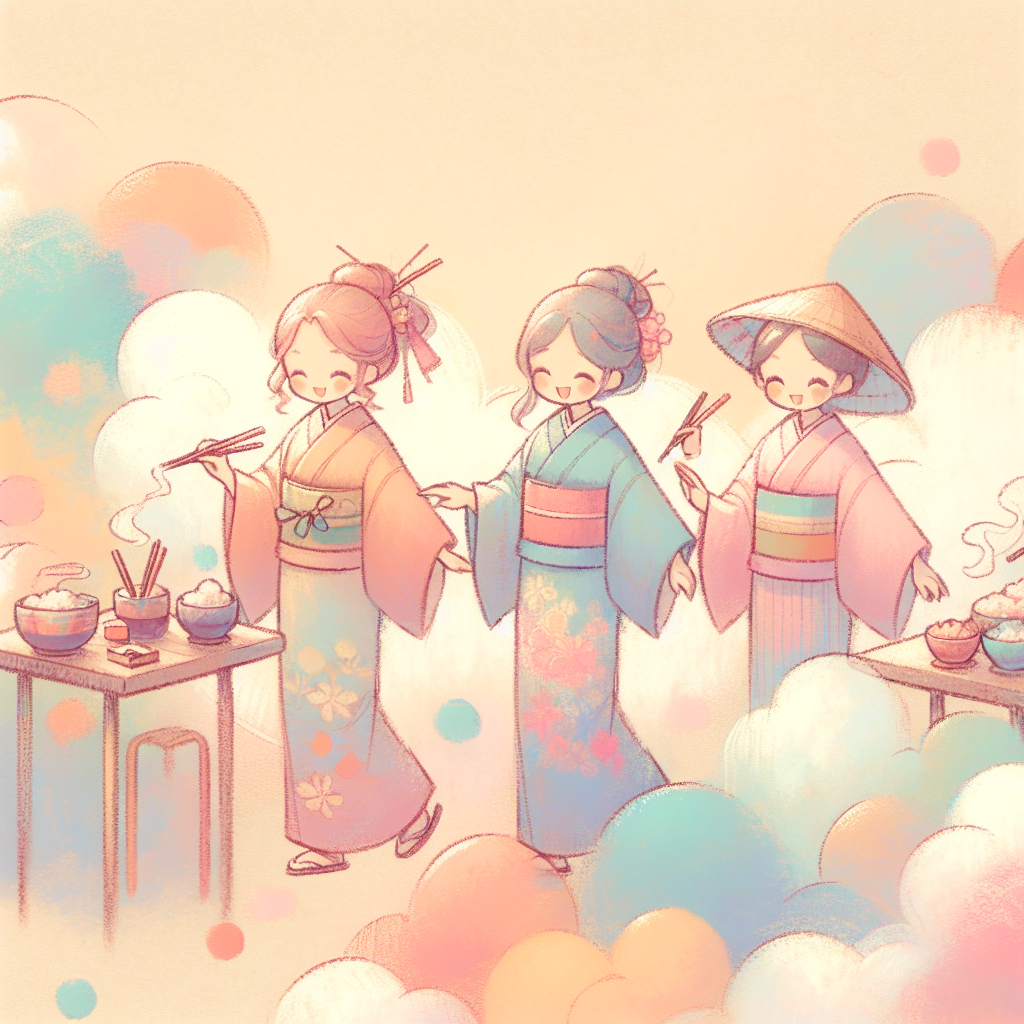The Unspoken Language of Japanese Manners: A Cultural Exploration
Japan boasts a rich cultural heritage, imbued with manners that reflect its historic and philosophical underpinnings. Often referred to as a ‘silent language’, these manners significantly shape interpersonal interactions and daily life. This article delves into the essence of Japanese manners, exploring how they manifest in everyday situations and their deeper meanings.
The Importance of Japanese Manners
In the realm of Japanese culture, manners transcend mere etiquette; they encapsulate profound philosophies and ways of thinking. Individuals adhere to unseen rules of behavior as a demonstration of respect and consideration towards others. For instance, greetings involve meticulous attention to word choice and body language, reflecting a natural inclination towards empathy and care. This cultural aspect ties closely to the principle of ‘wa’, or harmony, which underscores the importance of social cohesion in Japan.
The emphasis on manners is rooted in the pursuit of ‘wa’, even amid a competitive society. In Japan, community-oriented behavior often takes precedence over individual expression, creating an environment where the ability to intuit others’ feelings is nurtured. Understanding these cultural nuances is invaluable for anyone living in Japan.
The Impact of Manners
Japanese manners not only serve as behavioral guidelines but also profoundly influence personal relationships. For example, the way one conducts themselves during a first meeting—such as adhering to proper etiquette, delivering a firm greeting, and exchanging business cards with care—is crucial for establishing trust and rapport in both personal and professional settings.
Moreover, home manners are equally significant. At mealtime, expressing gratitude by saying “itadakimasu” (lets eat) and “gochisousama” (thank you for the meal) is customary. These expressions signify appreciation for the food and the people who prepared it, reinforcing bonds within families and communities while maintaining social harmony.
Evolving Manners in a Globalized World
In recent years, Japan’s manners have undergone changes amid increasing global interaction. As international tourists and business partners flock to Japan, there’s a growing need for locals to adopt a flexible approach to manners, blending traditional practices with new ones. For instance, the rise in English communication in business contexts has inspired a distinct evolution of manners.
Conversely, there are concerns that exposure to foreign cultures may lead to the erosion of Japan’s unique manners. There is a noticeable tendency among younger generations to overlook conventions like keigo (respectful language) and bowing, making it essential to pass these traditions down. Such manners are deeply rooted in Japan’s long-standing cultural legacy, whose value remains steadfast.
Manners as Moral Education
Lastly, Japanese manners function as a vital component of moral education. Through communal experiences in schools, children learn the significance of ‘consideration’ and ‘cooperation’. This foundational learning is not just about personal growth but actively shapes the cultural fabric of society. Within the Japanese education system, manners are pivotal for cultivating ‘responsible citizens’.
Thus, Japanese manners play an essential role from cultural, social, and educational perspectives, being constantly practiced and acknowledged in daily life. For visitors to Japan, grasping the background and meaning behind these norms can enhance their engagement and experiences. Japanese manners transcend habit; they embody the manifestation of heartfelt connections, serving as a ‘silent language’ that fosters deeper communication.
By understanding and respecting these invisible guidelines, individuals can build more meaningful relationships, whether in business or personal settings. Japan’s unique manners offer profound insights into the nation’s values and collective psyche, inviting all who encounter them to engage in richer, more considerate interactions.


